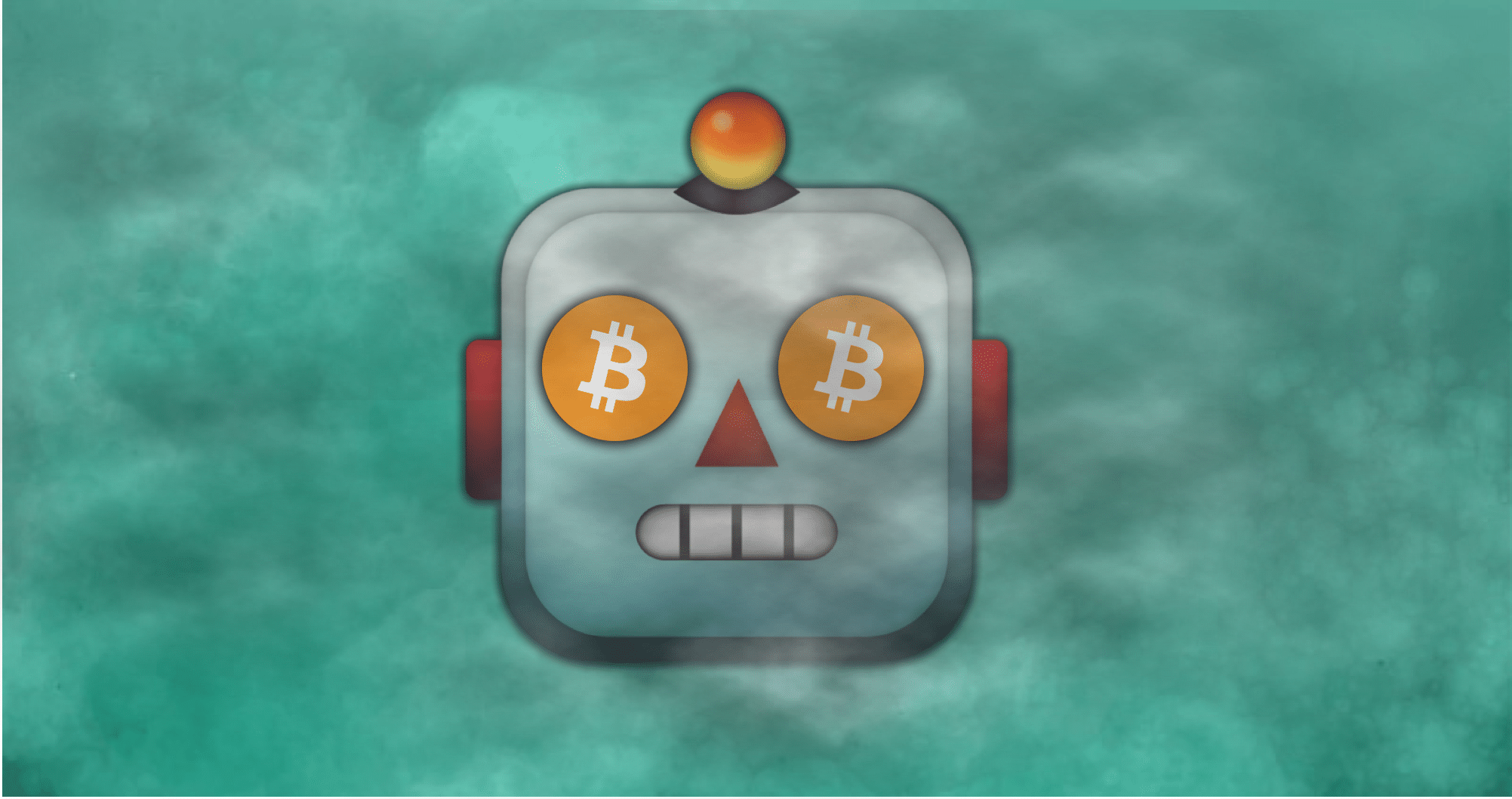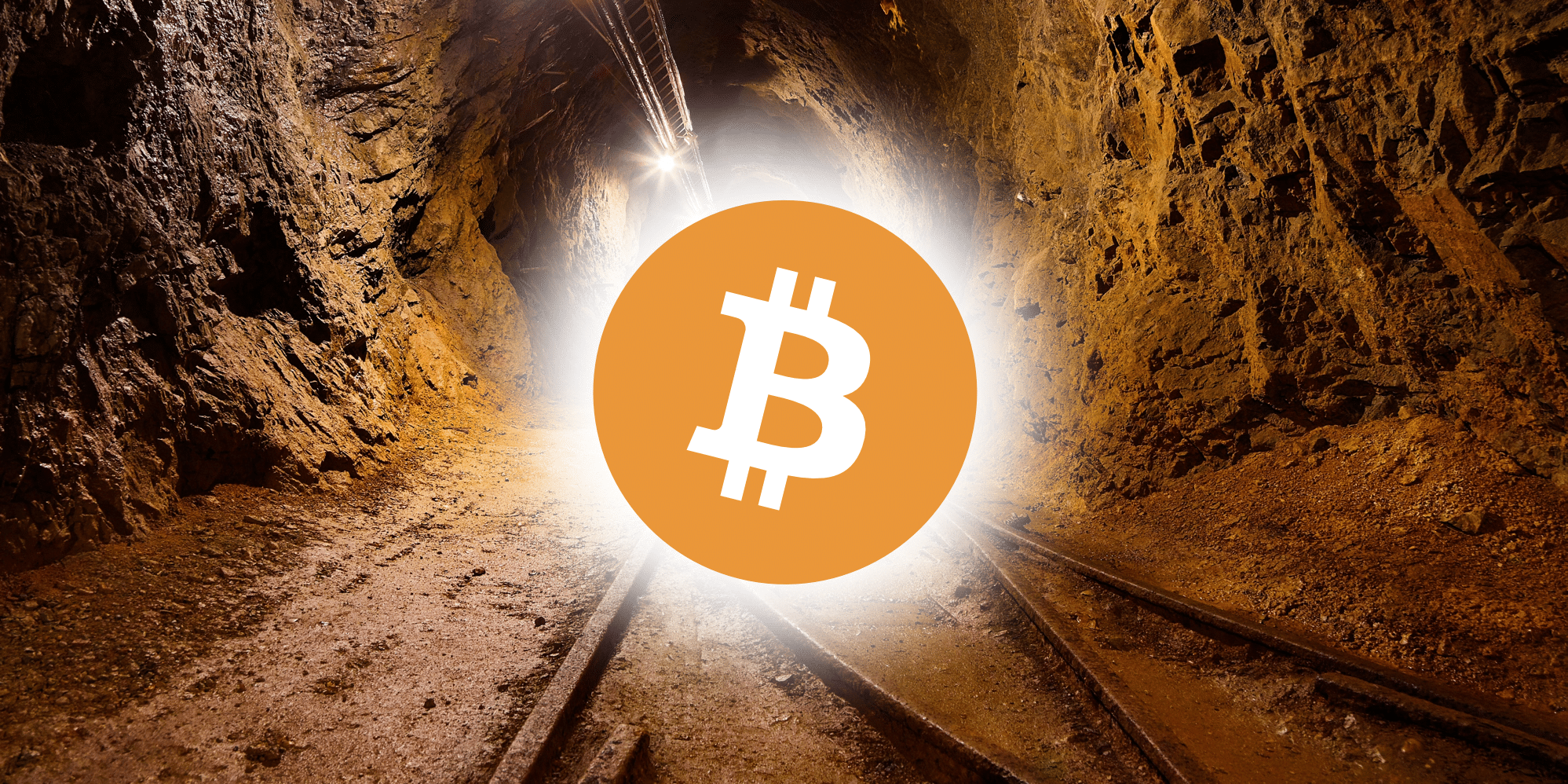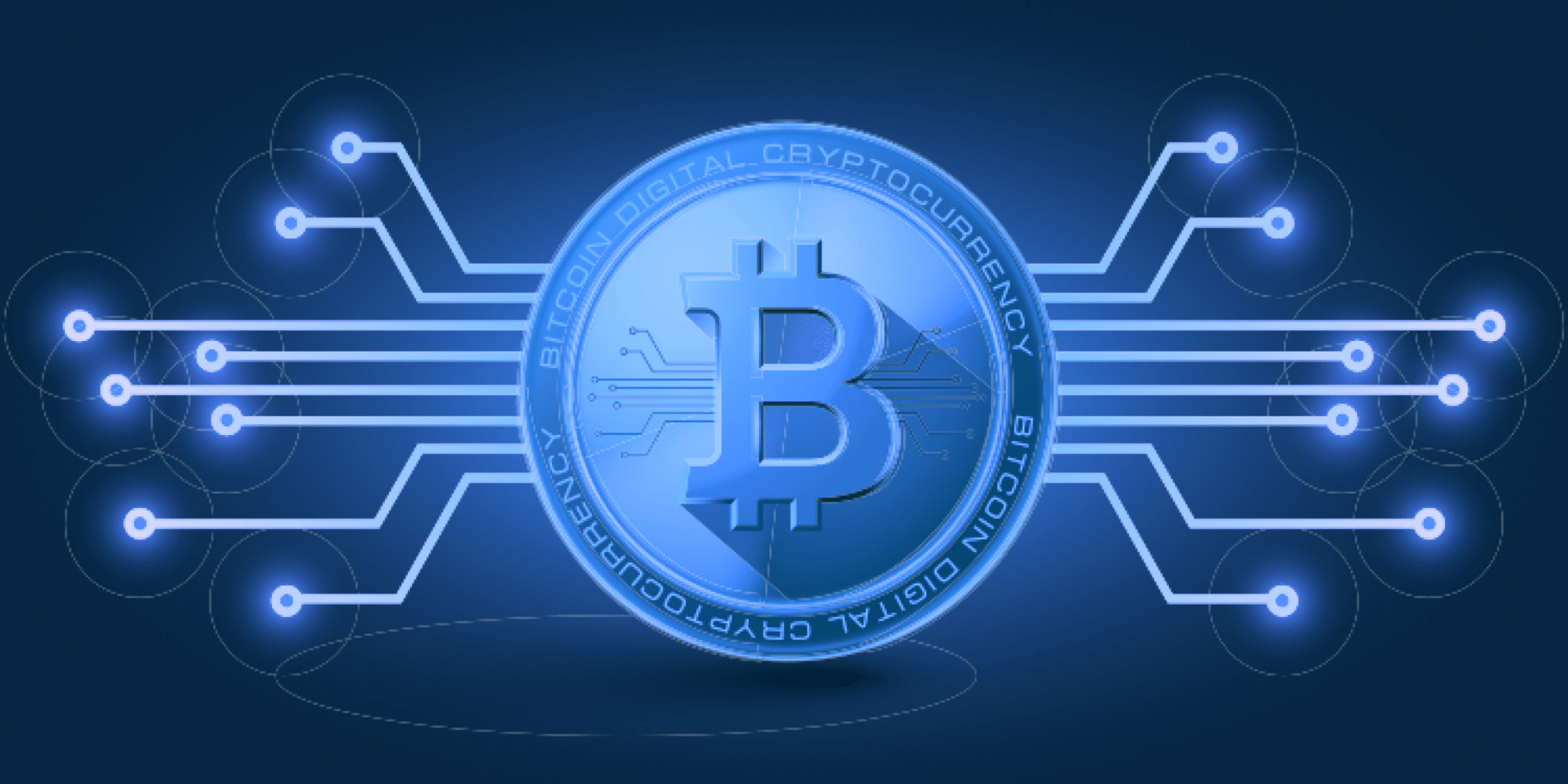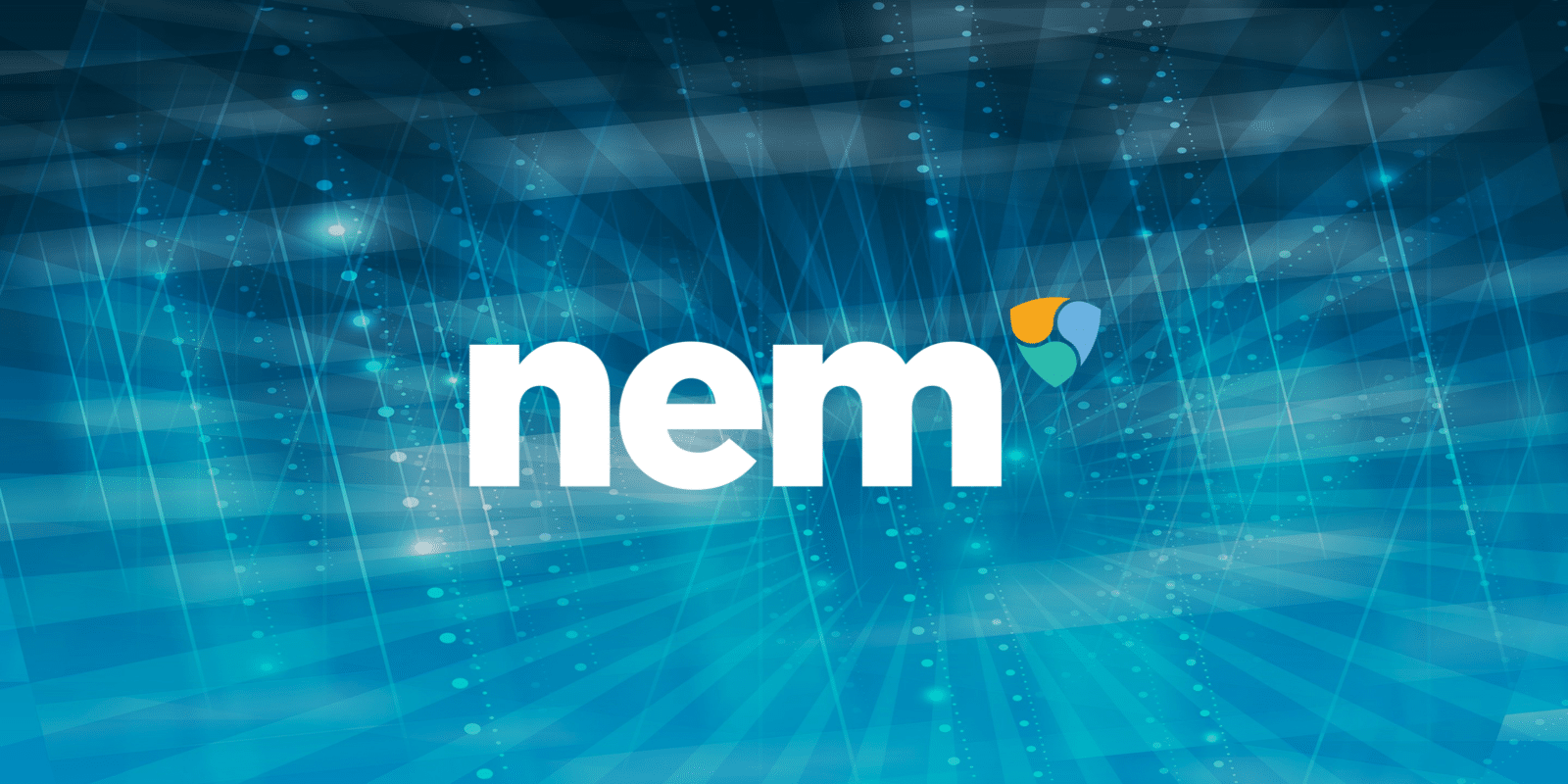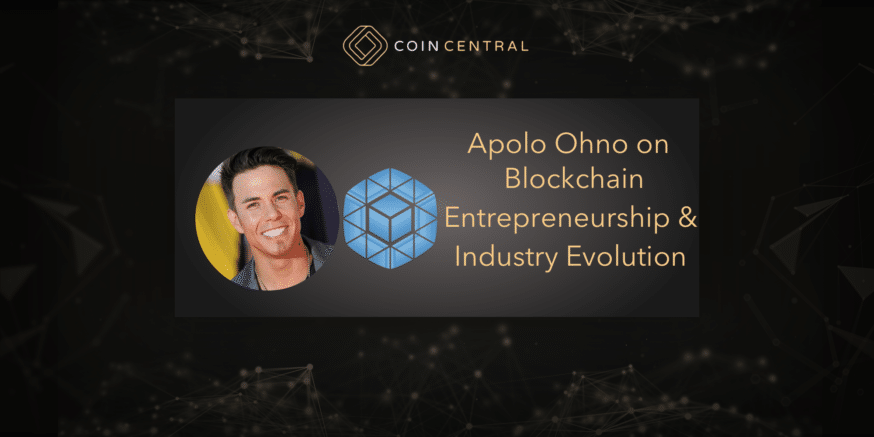Olympian & Hybridblock Co-Founder Apolo Ohno on Blockchain Entrepreneurship
Apolo Ohno is the Co-founder of Hybridblock, a cryptocurrency exchange, trading terminal, and learning portal.
Apolo borrows from a set of experiences few other entrepreneurs in the cryptocurrency entrepreneurship space can; he’s an eight-time Olympic medalist and American short track speed skating legend.
We recently had the chance to interview Apolo about a variety of topics including blockchain entrepreneurship & risk tolerance, the evolution of the cryptocurrency ecosystem, and innovation in the cryptocurrency exchange realm.
Many people have heard the name Apolo Ohno and the wide range of accomplishments that come with it. As someone that has won eight medals at the Olympics, how can you best describe the application of that experience into cryptocurrency entrepreneurship?
I think anyone who knows me or done business with me in the past knows my greatest strength is my work ethic and my ability to have an incredible network of friends and associates around the world and try to really connect the dots, whether it’s my partners in Asia, or my hunger to try to win in this space in every single capacity.
For those who don’t know me or know anything about my background, I spent the first 15 years of my life dedicated in the Olympics space towards winning. For those who don’t watch sports, they should know that the Olympic athletes are some of the most driven and passioned people that I’ve ever met, focused on the same thing time and time again, all day, every day for years and years, trying to get perfect on that one particular instance.

It’s taught me a lot about life, preparation, struggles, challenges, failures, bouncing back, coming stronger, and learning. The blockchain community is one that is very different. I think it’s an extremely collaborative community that really leans, and the strength of it is the ability to have this open source mentality to share with everything.
Whether it’s my friends in Santa Monica, and they’re open to a policy to having any project walk in the door and discuss openly, and be transparent with them, “Hey, man, I think your problems are going to get bigger and bigger. You shouldn’t do an ICO.” Or it’s, “Hey. We love your technology. You’ve got to improve. Do this and this.”
I’m excited about this community, and my goal is to strengthen the bond between this community and the community that doesn’t know about crypto yet and build that bridge so that more and more participants are here, using these technologies, and participating in a way that they feel comfortable. That’s really what I get excited about, is the fact that the world, to me, is still so untouched.
If there are 50 million users in the world for crypto, that’s nothing. That’s the tiniest, smallest thing. You’ve got 97 million millennials in the United States. You’ve got 47% of all of the world’s millennial generation. These are going to be the future users of all of these new greatest and latest technologies.
But if they’re not being adopted now in some capacity and the conversation starts today, the power slips from the fingertips and it goes back to those same institutions and organizations that these technologies are trying to disrupt. I want to make sure that people understand that wholeheartedly: Collectively, the more we work together, the stronger that we are.
Yes, there is competition. Yes, there’s always going to be better, bigger teams doing greater things. That is all great, because competition leads to coming out with incredible technologies that are going to win and be impactful. But at the end of the day, I’m a fundamental believer in this community.
I’m a fundamental believer. I put my own capital behind many different projects and I believe in them. I hope the best for everybody. I’m excited for what the future holds, and I’d love to be that catalyst to help spark this legitimacy for all asset classes that are in the crypto space and also some of the change that we think needs to happen.
What brought you to the blockchain space? What made you so passionate about cryptocurrency entrepreneurship?
My first initial onboarding into this wonderful world of blockchain, crypto, and cryptoassets began between late-2012 and early-2013.
Some trusted friends of mine who I had been long-time friends with, I had invested in their previous companies and I had noticed a lot of these guys were leaving their existing successful businesses and going all in on Bitcoin-related products, services, and companies.
The cryptoassets sphere was one that I didn’t understand at all in any capacity, but when I saw a lot of these influential individuals moving and migrating over, I thought it was really interesting. A lot of them had started talking to me, discussing the reasons why I should be getting involved, how it’s impactful, the transformative nature of the technology and the different applications. That’s where my journey began.
And as I dive deeper, I really started to understand the power that different types of blockchain technologies had, and where they were applicable, whether you are living in a remote region in the world that’s still out of cell phone service and you want to gain access to whatever goods, services, training or activities that you’re seeking, or there’s new enterprise-related technology that will things become more efficient, transparent, and limit the amount of risk associated with running these types of organizations or companies, or manipulation, etc.
I was obviously very interested because of the entire currency model on how we saw the digital currency as a gateway to a greater conversation of what money is, how society defines money, and how we interact with money. How does that play a role with governments, regulations, and all of our interactions back and forth?
The more I dove in, the more I also became confused but also the more I became interested. It’s been a wonderful journey since then.
It’s one of those industries where every single day, you’re right on the frontier of having absolutely no idea what’s going on because you’re pushing forward with a brand new technology and the vast majority of people around you are also trying to figure out.
Like, the smartest people in the industry themselves are like, “We know some, we don’t know all of it. We don’t even know what we don’t know. We’re trying to figure that out.” It’s like dealing with a high degree of uncertainty. It’s kind of like a typical startup, but exponentially more uncertain and difficult.
It’s very fun. I also think its power, ability, and potential is limitless. Again, not everything needs a token. Not everything is utilizing blockchain. Not everything needs to be truly decentralized.
But I think that idea set of having this radical transparency in many of the different services, and goods, and activities that we have in our daily lives, or how it relates to data and our own personal data, that’s when the conversation really starts to get big and we start to go deep.
That’s when our eyes light up because we understand and see just how these digital economies have transformed the world, how interconnected we all are, and where opportunities lie. It’s amazing.
What inspired you to start HybridBlock?
My inspiration for getting involved in the exchange space was spurred by my own frustrations dealing with becoming onboarded and going from fiat into buying my first cryptoassets. And not just me, but many of the friends that I had faced.
And I think most of us as Americans, unless you have bought up to another means or exchange, I think a lot of people have utilized the Coinbase model. Those guys have done a very good job of simplifying the process.
No one’s perfect. People don’t like to be charged high fees, and there’s always a complaint here and there. But the reality is, that was my first introduction, was going through that system because it was the easiest. I was willing to pay more because it was the simplest and there was some level of trust.
And then as my sophistication grew, I went on to find other different types of exchanges and different types of altcoin technologies. That’s when I started to play around. But I decided to go with the exchange space, specifically HybridBlock, because I thought that there was a region and a portion of the world that could be serviced through a retail model that was simple and could target some of the pain points and try to figure out solutions to them.
I’ve been traveling to Asia for the past 20 years. I’m bullish on Asia in general. In terms of population density, their appetite for digital currencies and digital assets and their adoption rate of understanding these things because of the gaming phenomenon that had occurred all throughout Asia in addition to their love of mobile devices. I think it’s higher than anywhere else in the world.
And so, I just saw from an opportunity perspective: How do we facilitate a service that is very simple, where if there’s ever a problem, people can pick up the phone, and call and figure out what that solution is going to be, and have someone walk them through that process?
As we continuously keep evolving and trying to legitimize the cryptoassets space, at the forefront, that was my target, was not only the retail, but existing cryptoasset holders, and then what is missing from the larger scale institutional, or prop trading firm, or HFT firm who is looking at utilizing their technology to trade and get in in a compliant, safe, and familiar manner. That’s how I started.
One thing many people jumping into cryptocurrency were shocked by was how bad customer service was. If there’s one company that can at least offer really good customer service, that’s enough value added.
So, the more we have user-friendly products, especially something like exchanges that help onboard people into the ecosystem, the stronger the industry becomes.
Agreed.
This space is so new and there are so many pieces missing. There’s scalability issues. There’s all of this talk about this or that exchange is better because it has this or that blockchain.
And I think at the end of the day, the way that I view it from a fundamental perspective is: I just want a simple, easy component that makes sense to me as an average user and access the best prices with the lowest fees in the simplest way that’s fast, easy, understood, as if I was shopping on Amazon.
That, to me, is a very easy, simple, and intuitive way in which I interact with my own shopping means. But then as you go into finance and trading tokens, I want to be able to have something a little bit different. And I think that cascades and then grows as we delve into the different sophistication levels of every user.
Specifically, those who’ve been in this space since 2010, the OG crypto guys who really understand this better than most. Their needs are different than the guy who is in Hong Kong who heard about crypto through Bloomberg on television one day and maybe saw Mike Novogratz on television talking about how it’s going to change the world and how everyone’s replacing 0.25% of their holdings as a hedge into this, into currency hedge. Now, they want to participate in some capacity, but they have got no idea how.
We hope to be that entity that can walk people through that process. It’s never easy. For sure, technology is one of those things where sometimes you don’t know what you don’t know until you just run through it. And then you figure out there’s lots of issues, challenges, and server problems that happen. But at the end of the day, I think you can work some of these things out and it’s meant to be a seamless and invincible experience that is very, very smooth.
What do you think is going to be the primary way people start hearing about Bitcoin or start actually trading in the next few years? The first big hurdle is educating people that cryptocurrency exists.
How can we show people that this is something that they should use? What do you think the industry needs to do as a whole to facilitate that transition?
I’ll give you my two cents. Aside from the technical needs of scaling, additional wallet UI/UX and functionality, an educational system is critical to getting mass market adoption so they understand the facts about Bitcoin, blockchain, Ethereum, and these other emerging technologies that are sprouting up every single hour.
It starts with leading market cap companies. Whether you agree with them or not, that’s just the reality. That’s where human psychology is always going to go. And so, it leads credence to explaining what these are in its truest form, and also its most basic simplistic form so that someone can understand.
I’ve been very passionate about creating an app and a website designed to simply educate people who don’t know anything about crypto. For example, my father has heard about Bitcoin, maybe through Julian Assange in his studies and research online. But aside from that, he doesn’t really understand anything about it.
He thinks Satoshi Nakamoto is like a long-lost relative of his in Japan somewhere. I’m trying to explain to him that that’s not the case, that this guy, or woman, or team, or group is anonymous, and that they haven’t actually come out and pronounced to the world that they’re still around.
I want people to understand through this app what crypto and blockchain is, how it can impacts their lives, how they can get involved, as well as different aspects like volatility, risk, and how much they should invest into crypto. All of these different elements need to be explained in a really simple way that people can relate to.
We feel we’ve been working across some of those mediums, and we feel we’re going to get some traction with that kind of shift of education. I know there’s some players out there who are doing a good job, and I applaud them and thank them for that effort, but I think it takes an overall community perspective to do so.
Unfortunately, the individuals who I look up to in this space, they’re so immersed for so long. It’s like talking to me about the technology behind an Olympic training regime, or an Olympic blade that I skated on for years. Most people just wouldn’t understand this because of all the intricacies involved.
Until I break it down to someone in the most simplistic and relatable way, it’s still going to sound very alien. And I think that’s changing. But still, at the end of the day, you’ve got to remember: When you walk around any of your home towns anywhere in the world, and you ask the average person on the street, they actually don’t really know what these technologies are, or how they’re used, and how they can acquire them in some capacity.
And until people start saying yes, I think we’re still a long way from mass adoption. And it doesn’t necessarily come with only the institutional money, because I do think that’s coming in a way that has been building for the past 18 months.
I do hope, wish, and want people of all different types of income streams to have that knowledge and empower themselves even at the smallest tiny bit, that they truly understand at the basic level what these things are and how it can impact their life. And if it doesn’t, it doesn’t, but they should definitely have some understanding in some capacity.
It’s interesting because from mid to late-2017, everybody started becoming interested in crypto. Coins started flying up like 300% in a day, and a lot of attention started pouring in.
If it was your first time diving into crypto, you’re burdened with a huge education gap that you had to learn how to fill extremely quickly to make educated decisions.
I think it’s a big part of this. And I think as we grow and the crypto economy globally grows… I’m really passionate about getting the next 100 million people involved, educated, hungry, and wanting to participate in any way that they can, and not purely from a gambling speculative nature.
I know I can’t control that psychologically and every culture’s different. I know there are people just want a better life. They want a better life for their friends and family. But I think fundamentally, there is some really powerful element to this technology.
An educated consumer is actually a much longer-term consumer. So, the LTV of that consumer goes way up versus the guy who says, “I’m going to buy whatever coin.” And that coin dumps 35% in the first day and they’re like, “Shit. I’m out. This isn’t for me.” They start calling it a scam without having any kind of background knowledge or understanding of what the hell they just bought.
And I know that’s going to always happen because that’s happened for hundreds of years with everything. But I think now, we do have all of the viral tools associated with this that we can push out great content that every person can understand.
Whether you are an InfoSec specialist who’s been in his game for 7 years, or you’re the person who doesn’t know anything about tech in any capacity but you got some extra bucks in your pocket and you feel like participating because you love new technology. But you’ve got to understand the risks involved and you need to understand who, why you’re buying it, and where from.
Yes, exactly. Like, “What’s the process behind it?” So many people investing in 2017, myself included, invested into projects they only know conceptually. It will be interesting to see how a lot of these projects, many of which have raised a significant amount of capital, will evolve in the following months.
It’s an amazing time. I have a place in LA. I’m in Hong Kong frequently. 80% of my time is spent in Asia. I remember in 2016 talking to a lot of my DC friends and telling them, “Guys, this is a sector of business you should really be paying very close attention to, and I can’t wait until you guys are here and participating because of the capital power that they have in those regions of the world.”
And I remember the conversations they had. They were like, “No, man. I’m happy with my real estate and my biotech. I’m happy with my normal sand hill type investments in Silicon Valley.” And now, at the end of 2017, I remember talking to them and they own 2 or 3 companies. It’s just funny how fast people pivot and divert, and they move and they shake, and they get in the space.
I don’t fault anybody for jumping in or selling too late or too early. We’re still so early. There’s never been crowned a winner in any capacity, and I’m so grateful and happy to be surrounded by some really intelligent people who I respect immensely to teach me, and showcase, and watch and learn from other people.
Whether it’s other exchange operators, whether it’s individuals in the space who are traders, whether it’s people developing incredible technologies to make our lives easier and faster and better, or those who are doing it from a philanthropic community perspective: Guy’s moving to Puerto Rico and trying to figure out how to turn the lights back on just for that simple part of the world where people aren’t really paying too much attention but there’s a massive need.
There’s many different ways in which crypto wealth that has been generated, and also crypto knowledge and blockchain-related technologies can be applied that can really impact this way in a positive perspective. More so now than ever we need that, and I’m happy to be a part of that in some capacity by facilitating a place where people can trade these assets.
Absolutely. There’s this saying that you should always invest in people. When you’re starting a company, having the right people onboard is extremely important.
The way to look at it is, if you don’t really understand the cryptocurrency industry but you know a lot of really smart people are working really hard, like 100 to 120-hour work weeks building stuff, something may be going on.
It’s an amazing time, and I’m happy to be involved in a way that we’re also trying to solve some of these issues and we’re trying to work our way through some of the existing problems. It’s a fun process. I think we’re just starting.
The volatile markets are here. We know that it goes up and down and left and right. It’s difficult to say whether it’s straight on news, or rumor, or factual. Whatever it is, it moves hard and fast. There’s people making lots of money trading, and there’s individuals who’ve been long-term holders that they haven’t touched their wallets for a long time.
There’s different strategies everywhere. I’m just excited to be a part of the economy in every capacity and help onboard that next 100+ million people, wherever in the world that they are. I’m really passionate about that, and then hopefully work with the regulators in a way that they understand that this is a space that should not be over-regulated and can’t act like traditional assets because it’s so different in every capacity.
I think once they understand that, those countries will be the first ones to win. And we’ve seen a lot, whether it’s Korea, or Japan, or Malta, or the next jurisdiction.
Absolutely, and it’s been interesting to see how a lot of the people behind these projects are big risk-takers. That personality type filters into this. Because in 2015 or 2016, to be working on a cryptocurrency project full-time — which a lot of those projects blew up in 2017.
NEO was Antshares at the time. The team was constantly working on it. And then in 2017, it just blew up. It went from a couple pennies or dollars to $200 to $300. The mindset that requires someone to have immersed themselves into the cryptocurrency industry relatively early on must have had some appetite for risk or at least a high degree of tolerance of uncertainty.
NEO has been amazing. In China in general — and I don’t know how many of these listeners had ever been or seen the blockchain communities in every different province that technologically is being pushed by the government to be leaders. In the past, the Chinese have always been looked at as the copycat kings.
But the reality is, I think over the next 10 years, you’re going to start to see them as being tremendous innovators and leaders in robotics, AI, and in blockchain technology. It’s a numbers game. The population density that China has, and India, for these types of technologies and the needs are incredible.
I think it’s inspiring, and I urge individuals who have never been to a meet-up or a conference overseas — We’re doing a conference at the end of July in Bangkok, in which we’re bringing a whole slew of Southeast Asian startups, strong VCs, and a new technology company is presenting. It’s a really cool, different perspective to see the appetite in these regions of the world that we’re not used to.
And me being American, it’s different. I always believed the United States will always have the strength of being the center for tech for the next 10 years, but things may change. I think it’s a good thing. I think that we’ll see greater technologies. And as with any competition, the cream always rises to the top.
What sort of advice would you give to anyone from any other industry, that may or may not be related to computer science or blockchain, to take the leap if they’re thinking about getting the blockchain entrepreneurship?
I have no computer science background in any strength or form. However, a lot of my friends do. And where they have weaknesses, perhaps I have strengths and vice versa. It’s about building a team around you, and learning, and getting involved with people and companies that are willing to showcase what they’re working on, and how you can strengthen your functionality within those organizations, and how you can learn yourself.
I think that’s the first approach, is first and foremost understanding at the basic level: What is this industry? How do I play a role? If you’re not going to go build the next atomic swap technology that’s going to trade on a publicly-registered exchange in a specific jurisdiction, then what is it that you want to do?
If it’s simply you just want to go crank some money, then figure what that is and do it in the best way possible with the right type of intent and transparency so that everyone understands that this is what you’re trying to do. At the end of the day, we’re still a small community.
And it feels like it’s so big and we know that there’s thousands of projects every day that are happening all over the world. It’s growing and it’s incredible. But in comparison to the world and internet penetration, or Facebook penetration, or cellphone usage, we’re still tiny and I think we have a long way to go. It’s beautiful for anyone to get involved at this stage in this game, and you don’t need to be an expert.
For those that are, we applaud those guys and I commend them. I thank them for their hard work. However, I think there’s a place for everybody in this world and there’s a place for everybody in this economy. And whatever that is, it’s up to that individual to determine what their actual strengths are and how they can facilitate the best use of their time and energy towards progressing any company organization or dream forward.
How can someone get more involved, or help out in any capacity, to help you guys succeed?
Sure. I always urge — Like my friends who ask me how they can learn, I said start going to some local meet-ups. You’ll be really surprised at how open the community really is. It’s unlike any other organization or local meet-ups that I’ve ever been to.
And I’ve been to many, being a serial entrepreneur hungry for new technologies, and being and seeing where the next opportunities are. I think the crypto and blockchain community is really different. And the fact that you’ll meet a lot of people that maybe are the first-timers there. They’re trying to learn the same way.
Not only do you build an incredible group of friends, associates, and potential business partners, but you’re learning alongside people who are both experts in their field and those who are first-timers. They don’t even own their first Bitcoin yet.
And if you’re that person, then that’s where you begin. I’m a firm believer that you can read all you want online, but until you start going out there and you start talking about it and becoming educated in person, it’s a different visceral experience. But once you do, I warn you: The rabbit hole goes very deep and you’re never coming back.
Thank you!
To learn more about Hybridblock, check out the Hybridblock website and whitepaper.
To connect with Apolo Ohno, you can find him on Twitter.
Never Miss Another Opportunity! Get hand selected news & info from our Crypto Experts so you can make educated, informed decisions that directly affect your crypto profits. Subscribe to CoinCentral free newsletter now.


